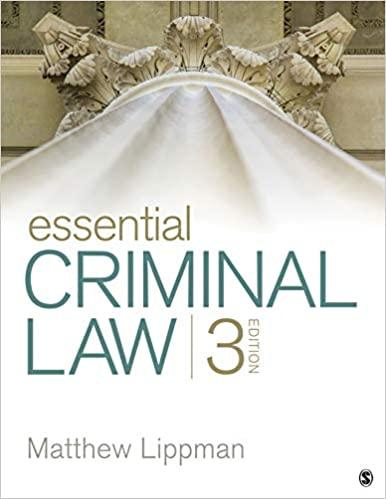Question
Messages Inc. (MI) provides answering services to retailers. Calls to a retailer are automatically forwarded to MI, which pays for the calls. MI obtains telephone
Messages Inc. (MI) provides answering services to retailers. Calls to a retailer are automatically forwarded to MI, which pays for the calls. MI obtains telephone service from major carriers, including Sprint. Sprint's tariff (a public document setting out rates and rules relating to Sprint's services) states that the "subscriber shall be responsible for the payment of all charges for service." The tariff serves as the contract between Sprint and all of its subscribers, including MI. Because of faulty computer security at MI, computer hackers obtained the access code for MI's phone lines and made nearly $150,000 worth of long-distance calls. MI asked Sprint to absorb the cost. Sprint refused.
MI filed a complaint with the Federal Communications Commission (FCC), claiming that Sprint's tariff violated specific federal laws and FCC rules. These laws require that a carrier's tariff "clearly and definitely" specify any "exceptions or conditions which in any way affect the rates named in the tariff." The FCC rejected MI's complaint. MI appealed the FCC's decision to a federal appellate court, claiming that the FCC's decision to reject MI's complaint was arbitrary and capricious.
What legal test will the court use to resolve this issue? What does this test require? Applying the law to these facts, what should the court decide and why? Fully explain.
Step by Step Solution
There are 3 Steps involved in it
Step: 1

Get Instant Access to Expert-Tailored Solutions
See step-by-step solutions with expert insights and AI powered tools for academic success
Step: 2

Step: 3

Ace Your Homework with AI
Get the answers you need in no time with our AI-driven, step-by-step assistance
Get Started


